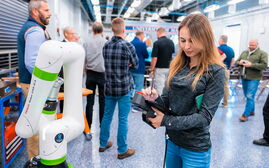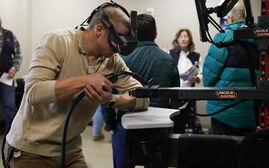UMaine, businesses team up to tackle food waste
The state's business community is part of a new council convened by the University of Maine to reduce food waste.
The Maine Food Production Leadership Council, launched by faculty and students six months ago, is working “empower Maine businesses toward sustainability," according to a news release.
The council was developed as a collaborative project led by a team of UMaine students and faculty in connection with the Senator George J. Mitchell Center for Sustainability Solutions.
The 30-member council now includes food manufacturers, retailers, distributors, the hospitality industry, farmers, schools, hospitals, hunger relief organizations, solid waste management professionals and public policy makers.
The group has identified the reduction of food waste and the diversion of organic waste from landfills as the highest priorities. It also noted that there are links between food waste and food insecurity.
“The Maine Grocers and Food Producers Association is proud to collaborate with the University of Maine and the Mitchell Center to find practical solutions to combat food waste,” Christine Cummings, the association’s executive director, said in the release.
“With strengthened connections and communication, their sustainability strategies will ideally result in cost-saving initiatives that help businesses meet the goals of Maine’s food recovery hierarchy.”
Nationwide, up to 40% of food produced for human consumption is wasted, according to the Harvard Food Law and Policy Clinic. Yet Maine also has the highest rate of food insecurity in New England, according to data from the U.S. Department of Agriculture’s Economic Research Service.
After learning from council members about the challenges they face, students began researching potential solutions for reducing food waste in Maine, keeping organic material out of landfills and addressing food insecurity. The students included Stephanie Ayotte of Saco, a senior majoring in civil and environmental engineering; Katie Tims of Cornish, a third-year biology major; and Peter O’Brien of Eliot, a third-year economics major.
“Maine is an exciting place to find solutions for global food system challenges like food waste,” Susanne Lee, executive-in-residence at the Maine Business School and Mitchell Center faculty fellow, said in the release. “We have a nationally recognized food scene and yet our relatively small size and resourceful Maine culture means that our food system leaders are more able and willing to work together to find and implement best practice solutions to increase profits, strengthen communities and sustain our natural resources.
"We truly believe that Maine can be the ‘lab’ to successfully develop these winning triple-bottom-line solutions and then share with others.”













0 Comments